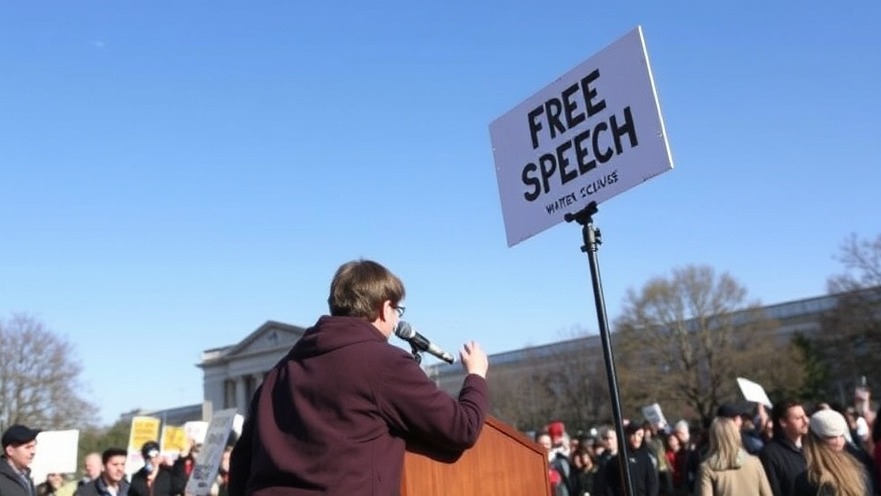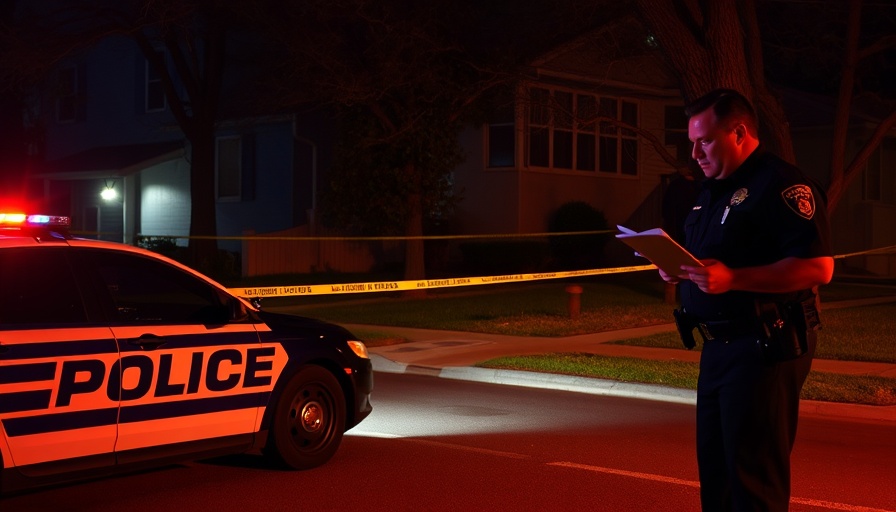
Understanding the Formation of Committees on Free Speech in Texas
In an unprecedented move, Texas legislative leaders have initiated committees dedicated to studying free speech and bias on college campuses, following the tragic killing of conservative activist Charlie Kirk. The House and Senate Select Committees on Civil Discourse & Freedom of Speech aim to address what they regard as a rising issue of bias against conservative voices in higher education. Speaker Dustin Burrows articulated the impetus behind the committees, calling Kirk's assassination a "political act" that reflects a deeper malaise within academic circles.
The Reaction to Charlie Kirk's Death
Charlie Kirk was a polarizing figure, known for engaging students on contentious political topics. His assassination at Utah Valley University has not only sparked outrage among conservative circles but also demands a consideration of the sociopolitical climate surrounding freedom of speech. Following his death, conservative lawmakers in Texas condemned what they perceived as a celebration of his murder on social media by some in the academic community. Lt. Gov. Dan Patrick emphasized that such actions threaten the fabric of American democracy, illustrating how personal liberties, like free speech, are increasingly under attack.
The Legislative Landscape Post-Assassination
The scrutiny over Texas universities was already intense prior to Kirk's tragic death. Faculty members faced backlash, leading to the termination of several educators who made statements perceived as politically charged. For instance, a professor at Texas A&M was dismissed after a controversy over discussing gender identity in a classroom setting. This cycle of criticism and dismissal shows the need for focused dialogue within the committees on how educational environments can remain free yet respectful, providing avenues for diverse viewpoints.
Bridging Political Divides: Can Texas Find Common Ground?
The committees formed are notable for their bipartisan structure, with members from both sides of the political aisle participating. This could signify an effort to foster civil discourse around sensitive topics and create frameworks for dialogue rather than division. As educational institutions continue to oscillate between liberal and conservative ideologies, understanding and addressing the concerns of both sides will be essential for fostering a productive discourse.
What This Means for Texas Education and Future Challenges
As the committees set forth to investigate free speech, their findings could shape the future of policies in Texas universities. Educational institutions might be compelled to adopt new codes of conduct that balance freedom of expression with accountability. This could be a pivotal moment for Texas education, influencing how students, faculty, and administrators navigate political discussions on campus.
Wider Implications for Freedom of Speech Across the U.S.
This situation in Texas is not an isolated incident; it illuminates a national discussion on free speech on college campuses. Similar efforts have emerged across the U.S., where institutions grapple with the boundaries of acceptable discourse. How Texas maneuvers through this crisis could serve as a model for other states facing the same challenges.
Final Thoughts: The Future of Civil Discourse in Higher Education
The issues surrounding free speech in academia are complex, encompassing societal changes, political climates, and individual experiences. How the Texas legislature responds in the upcoming months may not only affect local educational institutions but could also resonate nationally, as the fight over what constitutes acceptable discourse continues in college settings.
 Add Element
Add Element  Add Row
Add Row 



Write A Comment